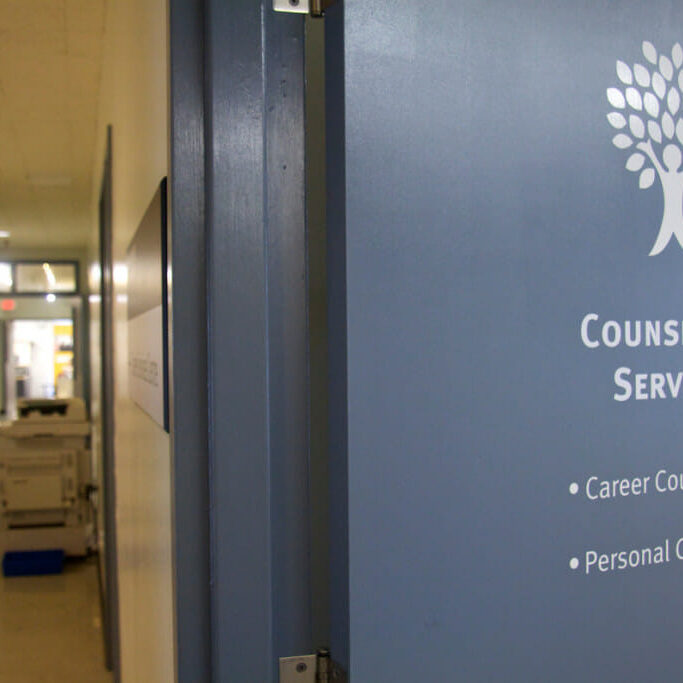
New app offers instant access to counselling services
Free virtual therapy offers counter to long waitlists
This Fall, students at Dalhousie and King’s can use their computer to access support for mental health problems like anxiety, depression, and phobias 24/7.
Welltrack, a service acquired by Dal Counselling Services over the summer, provides free virtual cognitive behavioural therapy (CBT) to its users.
“There’s a ton of research that shows that if you include these kinds of tools with therapy, people get much better,” says Darren Piercey, the University of New Brunswick professor whose research in virtual reality therapy provided the foundation for Welltrack’s development.
Students may choose to use Welltrack on their own or they can share their progress with a coach or psychologist from Counselling Services.
“The online program provides flexibility for students,” says Joanne Mills, director of Counselling Services, “and it’s probably an easier first step for someone to take if they’re considering seeking help.”
One of Welltrack’s features is Moodcheck, which checks in daily with users via email or smartphone notification and asks them to record how they feel, their location, what they’re doing, and who they’re with.
“The idea is that we love tracking everything. We track our steps, we track our calories. With Moodcheck, we can track how the things we do throughout the day affect the way we feel,” says Piercey.
Welltrack also features courses and videos to educate users about anxiety, stress, depression, and phobias. The courses are based on Cognitive Behavioural Therapy (CBT), which is often used in traditional therapy settings.
The new program may contribute to reducing the waitlist for students who wish to receive face-to-face counselling with a psychologist.
Last year, the number of phone calls from students requesting counselling appointments went up by 56 per cent from the 2013-14 academic year, and the number of counselling appointments has increased by 68 per cent in the last 5 years.
Maia Kowalski is a third year undergraduate student at King’s. When she contacted counseling services, she faced a few hurdles when she wanted to schedule her first appointment.
“They were telling me that there were so many people trying to get in that I would have to call right at 9 a.m. every morning to book a consultation,” says Kowalski. “If someone else needed to speak to someone faster, I feel like that would deter them because they would have to go through so many steps.”
Mills says that students can receive a Brief Initial Consultation appointment (a 30-minute intake session) within one to three days. Based upon that assessment, students with high risk are typically scheduled for a follow up with a week or two, but students with a medium or low risk of harming themselves or others can wait as long as five weeks or more.
Sarah Martin, a graduate student at Dalhousie, accessed counselling services in January.
“They told me there might be a pretty significant wait list, but they ended up calling me about two weeks later,” says Martin about her initial consultation.
After she was able to book a regular appointment, “I was in there and the woman I saw for about two months was great,” says Martin.
“It’s good once you get in,” said T.D., an undergraduate student who attended counselling sessions last year, “it just takes a while.”
Mills thinks that more students using Welltrack could lead to a reduced waitlist for in-person appointments.
“If some of the low risk students can manage and learn new skills with a coach to get where they need to go, it could perhaps take them off the waitlist and allow us to see more of the high-risk students faster,” says Mills.
She stressed that Welltrack isn’t meant to deter students from booking appointments with Counselling Services, but “this is an alternative or compliment to the traditional counselling process.”
Providing CBT online would also help students who are hesitant to access traditional, in person face-to-face counselling.
“It can be used as a ‘step-up’ program,” says Piercey. “The reality is that about 20-25 per cent of students in any given year are suffering from some form of major stress, anxiety, or depression, but two-thirds will never seek help from a counselling centre.”
This year, Welltrack could be the tool to help students seek help anonymously, without stigma.






